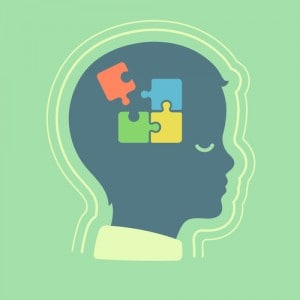
Data for the study came from the Danish Psychiatric Central Research Register, which is a database of every Danish resident who has received psychiatric care through the public healthcare system since 1969. Out of the 850,000 people in the database, the researchers identified 18,184 people with ASD, 11,209 people with OCD, and 739 people with both OCD and ASD.
Being diagnosed with ASD or OCD increased the likelihood of being diagnosed with both disorders. Individuals with ASD were twice as likely to receive a diagnosis of OCD. Individuals with OCD were four times as likely to receive a diagnosis of ASD. As many as 17 percent of Danish children with OCD displayed mild ASD symptoms. The disorders were also shown to run in families. If one parent had OCD, his or her children were more likely to have ASD.
Most people who had both disorders were diagnosed with ASD first. The symptoms of ASD typically emerge around age five, while the symptoms of OCD may not be apparent until puberty. However, around one-third (235 out of 739 individuals) of the people diagnosed with both disorders were diagnosed with OCD first. About 28 percent were diagnosed with both disorders at the same time. This suggests that children with OCD may have subtler ASD symptoms that are not identified until later.
The findings indicate that clinicians should be on the lookout for the symptoms of ASD in children with OCD, and vice versa. Receiving a diagnosis of both disorders may inform treatment choices.
This research is published in the journal PLOS One.
Previous news in autism:



 © 2025 Unyte Health US Inc.
© 2025 Unyte Health US Inc.